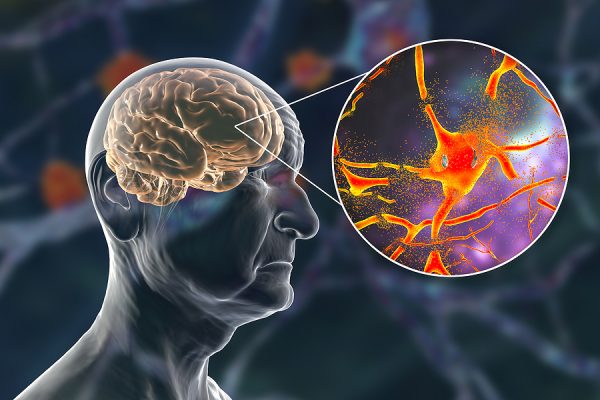The two most common mental health disorders in the U.S. are depression and anxiety. Millions of people experience the persistent feelings of sadness, apprehension and dread that come with these mental health issues.
While genetics may influence mental health, it’s lifestyle choices that matter the most – your diet, physical activity levels, sleep habits and so forth.
But, by far, I would have to say it’s the lousy foods we’re eating that are contributing the most to the mental health crisis.
The standard diet here in the U.S., high in refined carbs, unhealthy fats and excess calories, is inflammatory. In fact, studies show that people with depression score significantly higher on measures of “dietary inflammation.” Plus, these unhealthy foods have a terrible effect on your gut health.
That’s why I’ve been so excited to see more and more news about psychobiotics lately. This is a new area of study in the world of neuroscience. And growing evidence is showing that psychobiotics can reduce symptoms of depression and anxiety.
What You Should Know About Psychobiotics
Basically, psychobiotics are the probiotics and prebiotics found in our food supply that have a positive impact on our mental health. That may sound strange, but here’s the thing…
The microbial community in our guts interact with virtually all human cells. It even has the ability to communicate with your brain, and vice versa. It’s called the “gut-brain axis.” The communication between the two is so strong that the gut is often referred to as the second brain.
Part of the reason for this is due to the fact that your gut bacteria manufacture about 90 percent of your body’s supply of serotonin. You’ve probably heard of this neurotransmitter before. Low levels of it are associated with stress, anxiety, depression and fatigue.
Your gut microbiome also helps with the production of other neurotransmitters too, like GABA, dopamine, norepinephrine and acetylcholine. All of these can affect your emotions, sleep patterns, stress levels and general sense of well-being.
Well, psychobiotics boost the population of gut microbes that regulate these neurotransmitters. And that’s not all.
Psychobiotics also appear to be efficient at improving neurodegenerative disorders like Alzheimer’s disease and Parkinson’s. For example, when Alzheimer’s patients took a mixture of probiotics for 12 weeks, they showed a significant improvement on their Mini-Mental State Examination (MMSE) scores compared to those who did not receive the probiotic mixture.
Feed Your Gut to Feed Your Mood
One of the biggest issues with depression and anxiety is that a common human reaction to feeling “low” or “blue” is to reach for comfort foods. Things like ice cream. Mashed potatoes and gravy. Meatloaf. Mac and cheese. Pancakes and syrup.
In other words, our gut bacteria are already out of whack because we’re eating a standard American diet that feeds the bad bacteria and starves the good ones. Then, when we binge on comfort food, we end up making it so much worse.
We are literally feeding depression and anxiety!
The point is, the foods you feed your gut can have a huge impact your mental health.
Eating like a Mediterranean may be one of the best things you can do for your gut – and for your health. The rich bounty of plant-based foods and low consumption of red meat and processed foods are what make it possible.
For example:
- Adding more plant-based foods promote higher levels of bacterial short-chain fatty acid (SCFA) production. These are a primary energy source for the cells in your colon’s lining. They’ve also been linked to a reduced risk of conditions caused by chronic inflammation.
- A diet rich in fish, legumes, nuts and moderate wine intake helps reduce levels of potentially harmful bacteria and lowers inflammatory markers.
- Higher quantities of meat, fast foods and refined sugar, on the other hand, reduce levels of good bacteria and increase inflammatory markers. These foods are extremely limited in the Mediterranean diet.
And never discount the beneficial effects of fermented foods. A new study that is still in its early stages has already discovered that, out of 200 fermented foods, almost all of them have the ability to exert beneficial health effects on gut and brain health.
Be sure to check your email for the next issue of Advanced Natural Wellness on Friday, May 26, 2023, where you will learn about six surprisingly tasty fermented foods that feed your gut and brain.
Feed Your Gut to Feed Your Mood
One of the biggest issues with depression and anxiety is that a common human reaction to feeling “low” or “blue” is to reach for comfort foods. Things like ice cream. Mashed potatoes and gravy. Meatloaf. Mac and cheese. Pancakes and syrup.
In other words, our gut bacteria are already out of whack because we’re eating a standard American diet that feeds the bad bacteria and starves the good ones. Then, when we binge on comfort food, we end up making it so much worse.
We are literally feeding depression and anxiety!
The point is, the foods you feed your gut can have a huge impact your mental health.
Eating like a Mediterranean may be one of the best things you can do for your gut – and for your health. The rich bounty of plant-based foods and low consumption of red meat and processed foods are what make it possible.
For example:
- Adding more plant-based foods promote higher levels of bacterial short-chain fatty acid (SCFA) production. These are a primary energy source for the cells in your colon’s lining. They’ve also been linked to a reduced risk of conditions caused by chronic inflammation.
- A diet rich in fish, legumes, nuts and moderate wine intake helps reduce levels of potentially harmful bacteria and lowers inflammatory markers.
- Higher quantities of meat, fast foods and refined sugar, on the other hand, reduce levels of good bacteria and increase inflammatory markers. These foods are extremely limited in the Mediterranean diet.
And never discount the beneficial effects of fermented foods. A new study that is still in its early stages has already discovered that, out of 200 fermented foods, almost all of them have the ability to exert beneficial health effects on gut and brain health.
Be sure to check your email for the next issue of Advanced Natural Wellness on Friday, May 26, 2023, where you will learn about six surprisingly tasty fermented foods that feed your gut and brain.
SOURCES:
Firth J, Gangwisch JE, Borisini A, Wootton RE, Mayer EA. Food and mood: how do diet and nutrition affect mental wellbeing? BMJ. 2020 Jun 29;369:m2382.
Cheng LH, Liu YW, Wu CC, Wang S, Tsai YC. Psychobiotics in mental health, neurodegenerative and neurodevelopmental disorders. J Food Drug Anal. 2019 Jul;27(3):632-648.
Akbari E, Asemi Z, Daneshvar Kakhaki R, Bahmani F, Kouchaki E, Tamtaji OR, Hamidi GA, Salami M. Effect of Probiotic Supplementation on Cognitive Function and Metabolic Status in Alzheimer’s Disease: A Randomized, Double-Blind and Controlled Trial. Front Aging Neurosci. 2016 Nov 10;8:256.
Plant-based foods and Mediterranean diet associated with healthy gut microbiome. Press Release. Spink Health via EurekAlert. Oct 2019.
Kombucha To Kimchi: Which Fermented Foods Are Best for Your Brain? Microbiology Society. Press Release. Apr 2023.




